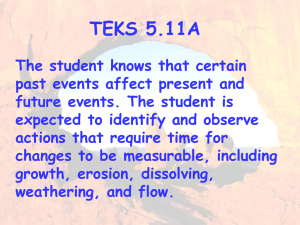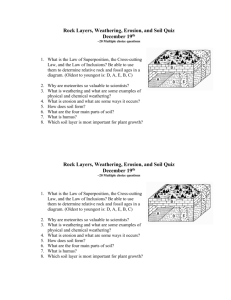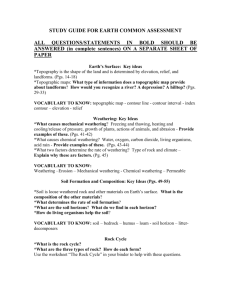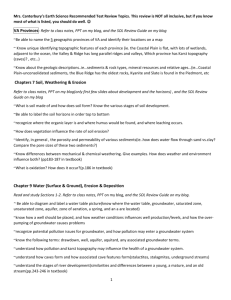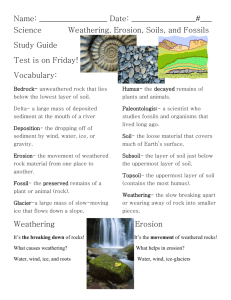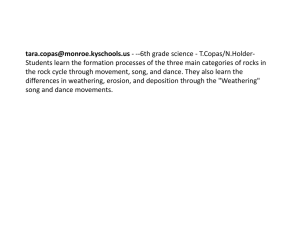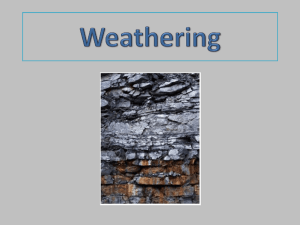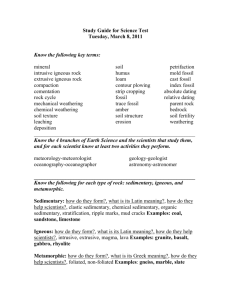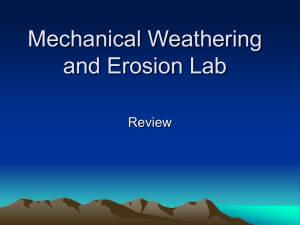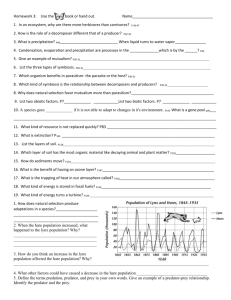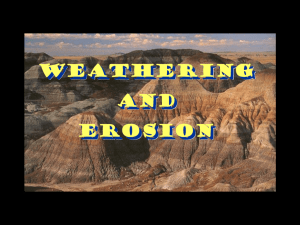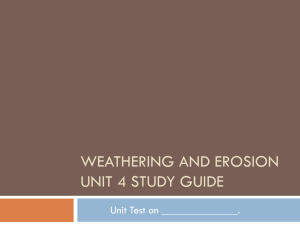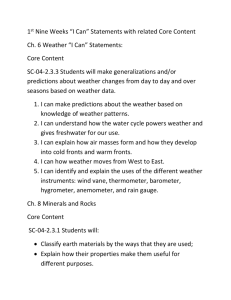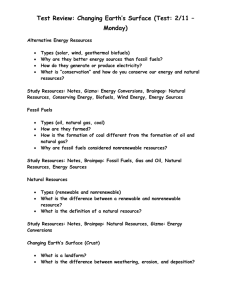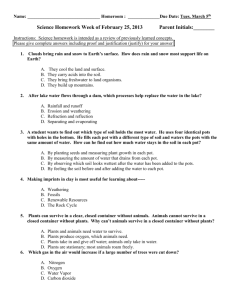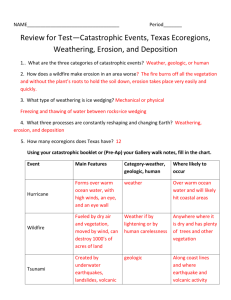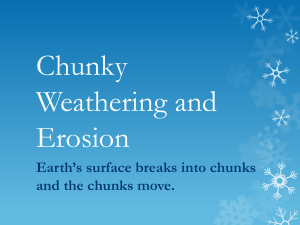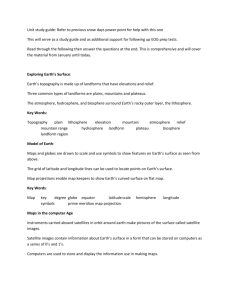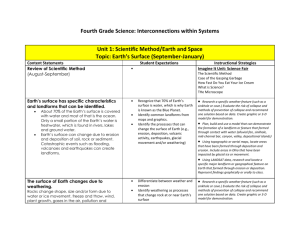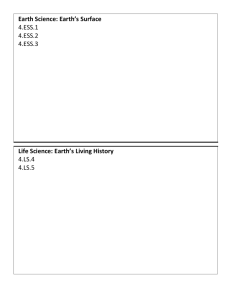Weathering, Erosion, & Fossils Test Review
advertisement
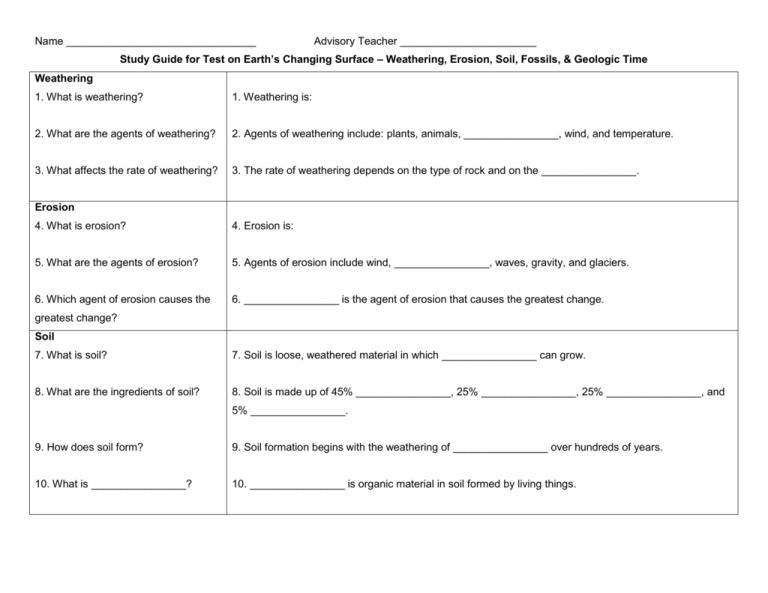
Name ________________________________ Advisory Teacher _______________________ Study Guide for Test on Earth’s Changing Surface – Weathering, Erosion, Soil, Fossils, & Geologic Time Weathering 1. What is weathering? 1. Weathering is: 2. What are the agents of weathering? 2. Agents of weathering include: plants, animals, ________________, wind, and temperature. 3. What affects the rate of weathering? 3. The rate of weathering depends on the type of rock and on the ________________. Erosion 4. What is erosion? 4. Erosion is: 5. What are the agents of erosion? 5. Agents of erosion include wind, ________________, waves, gravity, and glaciers. 6. Which agent of erosion causes the 6. ________________ is the agent of erosion that causes the greatest change. greatest change? Soil 7. What is soil? 7. Soil is loose, weathered material in which ________________ can grow. 8. What are the ingredients of soil? 8. Soil is made up of 45% ________________, 25% ________________, 25% ________________, and 5% ________________. 9. How does soil form? 9. Soil formation begins with the weathering of ________________ over hundreds of years. 10. What is ________________? 10. ________________ is organic material in soil formed by living things. Fossils 11. What is a fossil? 11. Fossils are remains of organisms that died long ago. Most fossils form when living things die and are buried by sediments. They are usually found in ________________ rock. 12. What are different kinds of fossils? 13. Why are fossils important? 12. Matching: Draw a line from each kind of fossil to its description. Kind of Fossil Description carbon film a. hollow area in rock in the shape of an organism mold b. solid copy of an organism in rock trace fossil c. organism that has turned to stone petrified fossil d. thin layer of carbon on rock cast e. preserved trace such as a footprint or animal poop 13. The Earth was not always like it is today. Fossils give evidence about how ________________ changed over time. 14. What is the law of superposition? 14. The law of superposition states that the location of the layer determines the fossil’s ________________. The oldest layer is at the ________________. 15. What is the relative age of a rock? What is the absolute age of a rock? 15. The ________________ age of a rock is its age compared with the ages of other rocks. The ________________ age of a rock is the number of years since the rock formed. Geologic Time Scale 16. What is the geologic time scale? 16. The ________________________________ is a record of how Earth and its life forms have changed through time. The scale begins when Earth formed ________________ years ago and goes to the present. 17. How is geologic time divided? 17. The geologic time scale starts with Precambrian Time, then the Paleozoic Era, then the Mesozoic Era, and continues with the ________________ Era today.
